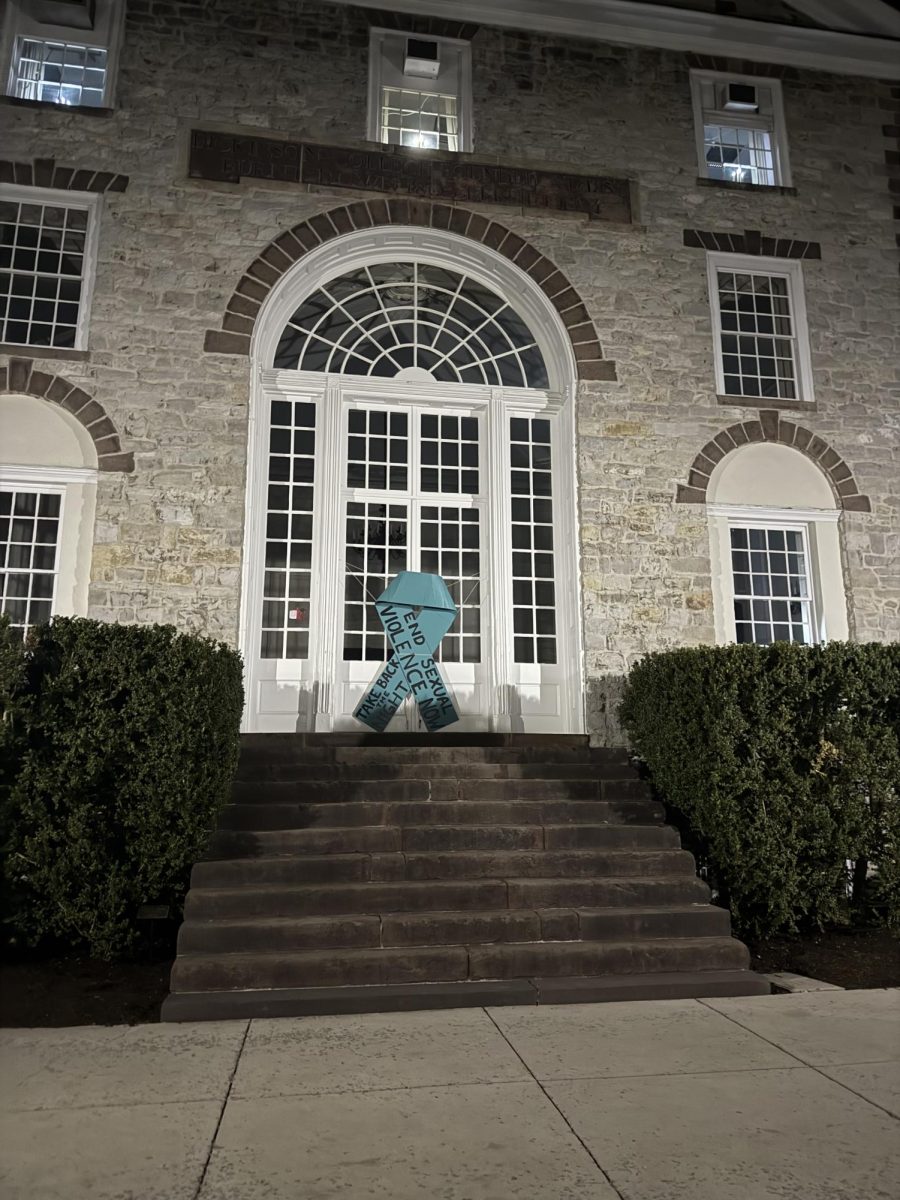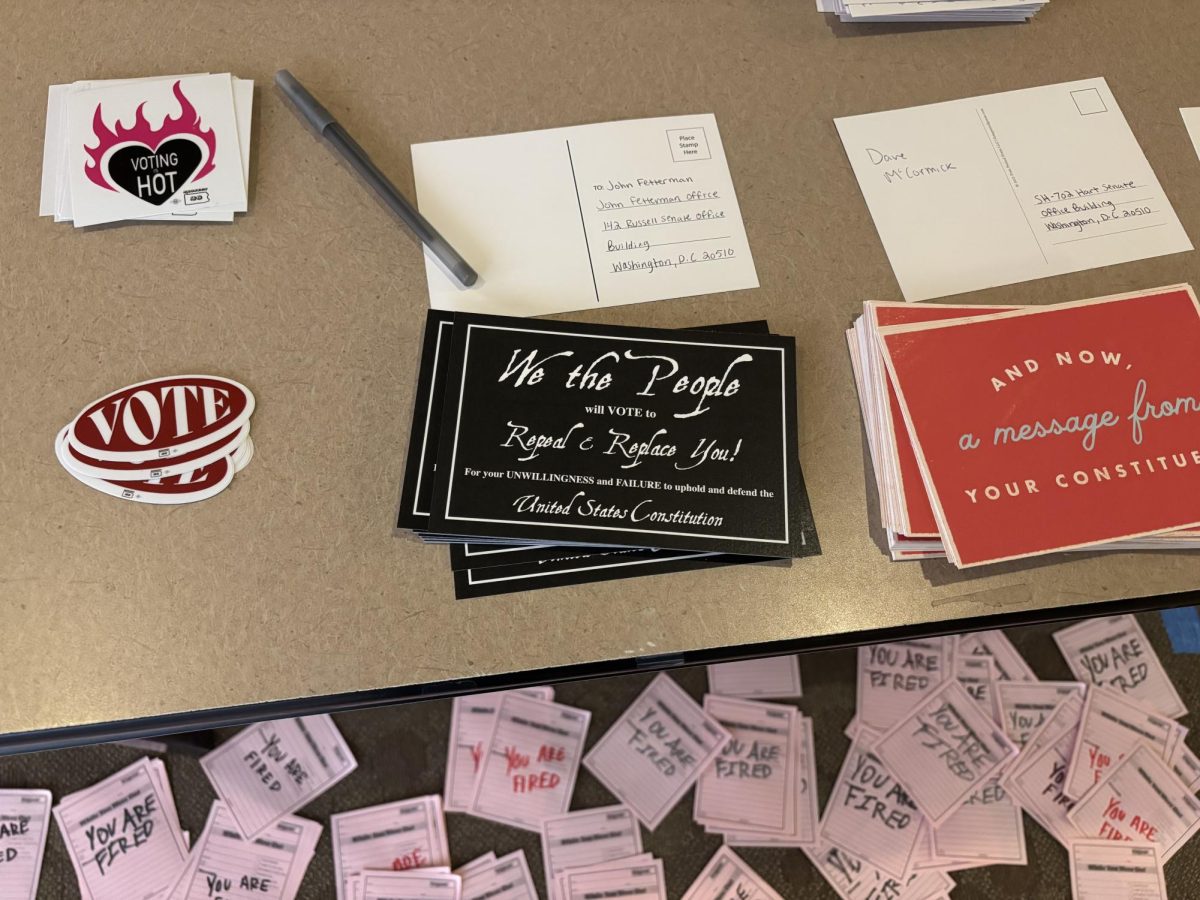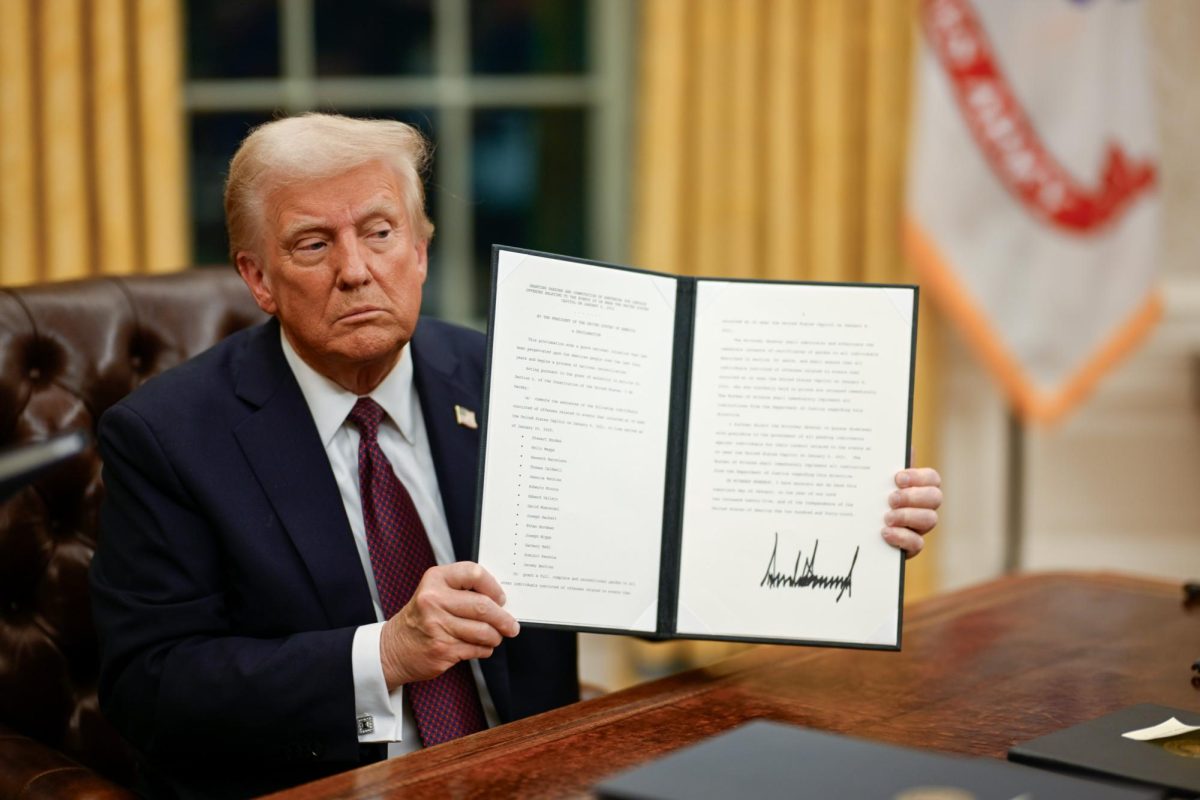Taylor Swift endorsed Kamala Harris on her Instagram (with over 284 million followers) shortly following the presidential debate on Sept. 10.
In her post, she stated “I will be casting my vote for Kamala Harris and Tim Walz in the 2024 Presidential Election. I’m voting for @kamalaharris because she fights for the rights and causes I believe need a warrior to champion them. I think she is a steady-handed, gifted leader and I believe we can accomplish so much more in this country if we are led by calm and not chaos.” Along with her post, Swift linked where to register and find early voting dates.
When asked about their thoughts on Taylor Swift’s endorsement and how it could impact voters, members of the Dickinson community had varying perspectives. Trace Maneval ’27, vice president of Dickinson College Republicans, said “I support anybody who’s willing to put their opinion out there and say why. I also like that she said to do your own research and make your own vote based on how you think and look at it.”
However, Maneval added that “in these kinds of polarized time,s if anybody is still undecided with all the news that has come out in this election, I personally don’t think one endorsement from anybody will make somebody go from one side to the other.”
Sarah Niebler, associate professor of political science, explained that “In the political science scholarship, endorsements can be particularly powerful in primaries because there’s less information about what’s going on. So right now in the general elections most people have pretty set views on what they think about Kamala Harris and Donald Trump.” That being said, she says that the 400,000 people that visited vote.gov from Swift’s link could make an impact.
Since Swift’s endorsement, the Harris-Walz Campaign has started selling Harris-Walz friendship bracelets and billboards of “We’re in Our Kamala Era!” and “A New Way Forward… Ready for It?” have appeared in Times Square and Las Vegas. Niebler said “I think the Harris campaign, especially in contrast to the Biden campaign, is really trying to energize young voters, and Taylor Swift is really popular among young voters.”
Ava Frederick ’28, a member of Dickinson College Democrats, said “People get burnt out with politics, and this gets people more excited.” Frederick’s comment is consistent with the excitement of Swifties on social media responding to Walz throwing out Taylor Swift references, like calling Trump “The Smallest Man Who Ever Lived,” a reference to one of Swift’s latest songs. Another member of Dickinson College Democrats, Aditi Bhargava ’28, notes that “her fans that are super young may not be able to vote right now, but I think seeing one of their idols voting and invested in politics might encourage them to vote once they’re older.”
Several Dickinson community members voiced concerns about the AI generated images that Taylor Swift called out in her post. These images of Swift falsely endorsing Trump were posted by Trump to Truth Social. “I think part of our democracy relies on truth telling and relies on facts so it does worry me that these technologies are out there and able to be manipulated” said Niebler. Frederick added that “there is something particularly nefarious about faking a political endorsement.”
Since Swift’s endorsement of Harris, Trump has posted “I HATE TAYLOR SWIFT!” on Truth Social, and publicly announced he was not a Taylor Swift fan. However, his campaign has been selling Eras Tour inspired t-shirts, which suggests they continue to court her fans.
Taylor Swift claimed that the circulating AI images led her to the conclusion that she had to be clear about her voting plan. Would Swift have spoken out otherwise? When asked if celebrities have a duty to speak out about political issues, Bhargava said, “Part of her brand is empowering women… if celebrities make a brand off of fighting for a marginalized community then I think they do have an obligation to speak out.”
Celebrities like Swift speaking out have many wondering if we can separate the art from the artist (and the artist’s politics), and if we can, is that even something we should do? Maneval explained “That’s what I try to do, I personally like to think of movies, music, TV, as an escape rather than bringing today’s issues into it.”
Others think differently: Frederick said that “art is inherently political,” while Bhargava said, “if the artist has been saying super bigoted stuff then I don’t think it’s about separating the art from the artist, you’re still supporting the artist and giving them money from using their streaming platforms.”
The upcoming election has highlighted the increasingly blurry line between politics and pop culture. Beyond celebrity endorsements, the recent presidential debate has been popularly described as “entertainment.” Frederick, in reference to her experiences watching past debates (especially Obama and Romney), said “Trump as a candidate has very much blurred the line … but there’s also just the world we live in with social media. A tweet can be made and a million people can see it in an instant, the Founding Fathers could’ve never conceived of that.”
Many Dickinson students have expressed that they would like to go back to politics being about politics, and less about the “show.” Niebler commented “Anything that gets people to pay attention to politics is okay with me, because even if someone tunes in to watch a debate purely because they think it’s gonna be funny or entertaining I think they can still learn something… That said, it’s important to realize real peoples’ rights, and real peoples’ lives, and real public policy happens in politics. So if we merely watch it as entertainment, and that doesn’t lead us to become more informed or doesn’t lead us to take action, it’s not sufficient for democracy and us as individuals to just watch it as entertainment.”






